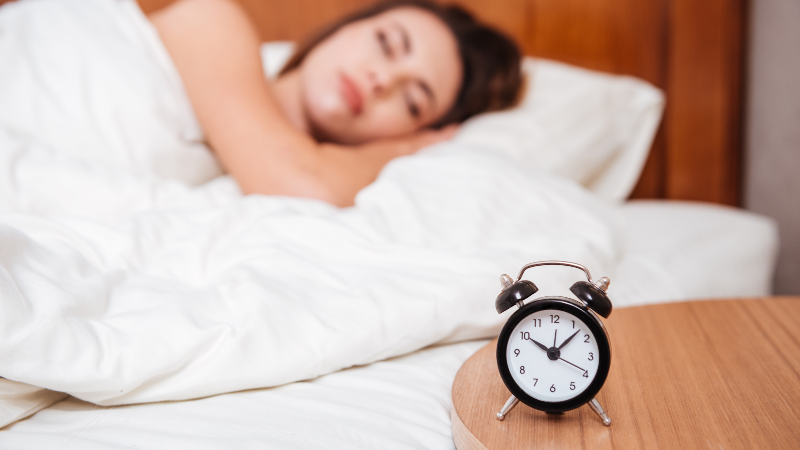
The upcoming time change on March 10th, and the loss of an hour of sleep, strains an already challenged focus on well-being and questions the relevance of the change, despite the benefits of added day light and Vitamin D exposure says Pearl Strategy and Innovation Design.
Canadians are working harder than ever to strengthen their health and wellness, with sleep at the top of the list. A new study from Pearl Strategy and Innovation Design reports the number of people actively working to improve their sleep increased to 90% in 2023, a growth of +6Pts from 84% in 2020 and +4Pts from 86% in 2019.
According to Susan Weaver, Managing Director Strategy and Innovation for Pearl Strategy, “We know from interviewing Canadians post-pandemic, they are more proactive with self-care. They are actively seeking out information and products to help with foundational habits and learning how food can help them feel more energized.”
The study is available for free download (The Pearl Health and Wellness study) and some of the key report findings include:
Improving Sleep
- Women express higher concerns about lack of sleep (61% vs. 54%) and tiredness/lack of energy (58% vs. 52%) compared to men.
- Women prioritize improving sleep significantly more than men (55% vs. 49%).
- Gen Z places a high priority on sleep improvement (63%), surpassing Millennials (52%) and Gen X (48%).
- Millennials are notably concerned about lack of sleep (64%), indicating potential implications for their overall health and lifestyle.
- Top actions taken to improve sleep – take prescription medicine (54%), pursue self-care (48%), meditation (45%), pursue hobbies (44%) and reduce/avoid stressful situations (43%). Men are more likely to take actions to reduce/avoid stressful situations (50% vs. 38%) compared to women. Women are more likely to take prescription medicine (64% vs 53%) compared to Men. Gen Z are more likely to meet/socialize with friends (46%) compared to older generations.
Focus on Mental Health
- Mental health concerns jumped +6Pts in 2023 from 2020.
- Women rated mental health at 54% and avoid/reduce stress at 53% higher than men.
- Gen Z exhibits a notably higher emphasis on mental health (73%) and stress (71%).
- Top actions taken to improve mental health – pursue self-care (48%), spend time in nature/outdoor (48%), research health information (45%), pursue hobbies (44%) reduce/avoid stressful situations (43%) and visit a health and wellness professional (38%). Men are more likely to visit a health and wellness professional (42% vs 31%) compared to women. Gen X is less likely to research health information (37%) compared to younger generations.
Efforts to Build Energy/Vitality
- Women express a higher concern for tiredness/lack of energy (58% vs 52%) compared to men.
- Gen Z places a high importance on increasing energy (58%).
- Gen Z rates tiredness/lack of energy (60%) as a substantial health concern, aligning with their overall focus on mental health and well-being.
- Top actions taken to increase energy – pursue self-care (48%), exercise/physical activities (47%), Spend time in nature/outdoor (46%) and reduce/avoid stressful situations (44%). Men are more likely to engage in exercise/physical activities (55% vs 40%) compared to women to gain energy and women are more likely to meditation (46% vs 36%).






